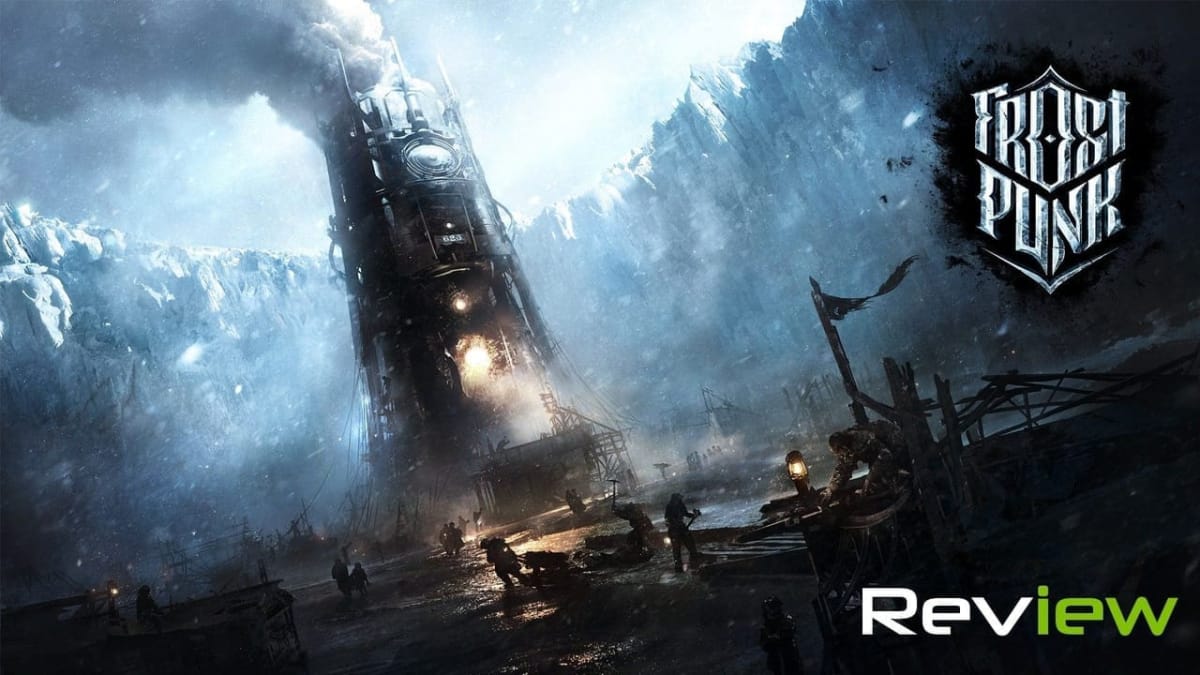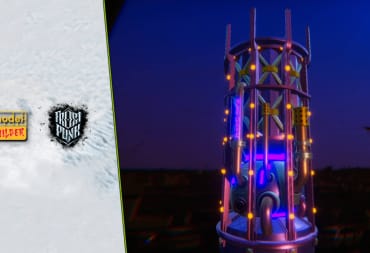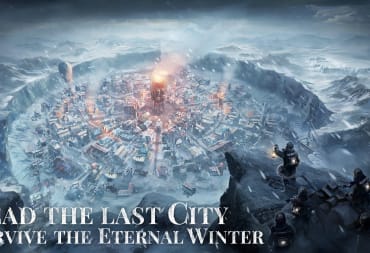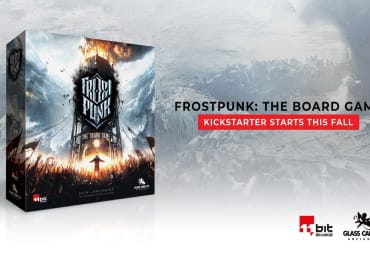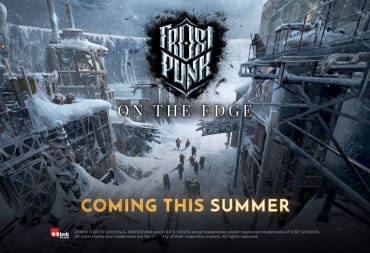The city builder genre is not one known for its engrossing narratives. Generally, as the genre goes, it follows the footsteps set out by Wil Wright long ago in SimCity, with the idea of being more an area to experiment and explore being the architect of your own city. Sometimes, there’ll be objectives you want to reach, but even those are generally more used to push you to explore certain interactions and expand how you look at building your city and to experiment with new construction models.
There’s nothing wrong with that, as it has created many a great game and speaks to a type of gameplay that we sometimes ignore. That being said, we also need games that attempt to challenge the general dynamic in genres, and with the pedigree of This War of Mine behind them, 11 Bit Studios was promising to bring a strong narrative with Frostpunk.
From its reveal, Frostpunk’s aesthetic was always eye-catching with the cold, winter setting contrasted with steampunk technology. This combination gave Frostpunk a unique visual identity, with the automatons and generator having a unique look that is quite different from other city builders. Another strong choice aesthetically is the way Frostpunk fogs or ices the screen when temperature changes happen, much like how glass reacts to cold or warmth.
That said, while Frostpunk has a strong general aesthetic, it has an issue with buildings sometimes being tough to distinguish when playing. When zoomed out, it can be a real problem to tell the buildings apart.Some are easily distinguished by size, but many of the smaller ones all look the same, especially if there’s some snow on them due to the cold. This problem becomes more pronounced as a game goes on and you put down more buildings. It really impacts gameplay when you need to change options on a building or juggle people around different workspaces.
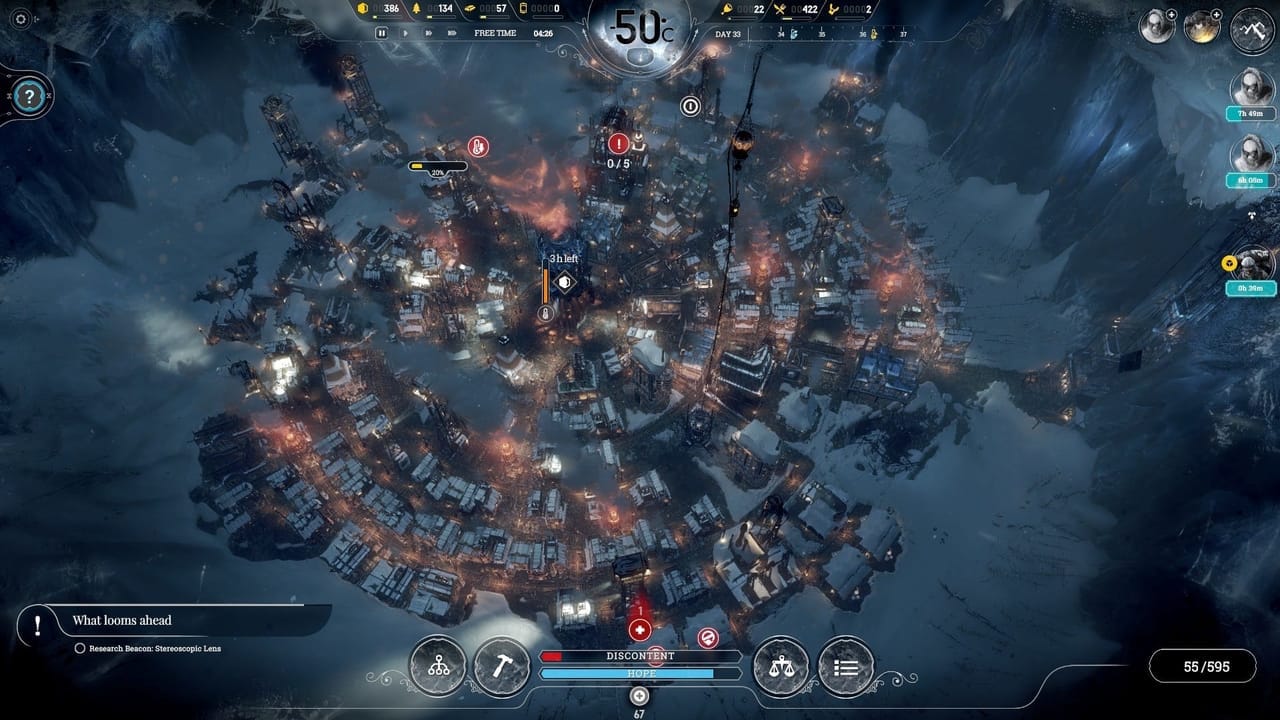
The reason you might be juggling is that you often have fewer people than you need to do things in the early to middle of a game of Frostpunk. In the main campaign, you start with effectively 65 people (plus 15 children) and need to gather various resources (wood, coal, food, steel) as well as set up research, hunting, cooking, and more. You do generally gain more people throughout the game (though you can turn most of them away if that's what you choose ...), but by the same token each of those additions also requires more resources to support. Beyond that, you also need more people or automatons to keep filling in the new jobs that open up as you research and build new buildings, which feeds into that prior loop. The people and resource management are definitely reminiscent of real-time strategy games, albeit with far fewer pushes to keep clicking things.
Frostpunk's pace is largely very good, but it does run into some issues. In the early game, Frostpunk's play is dynamic with various demands for resources and buildings stressing what manpower and resources you have to create a compelling experience. This ties into how the game likes to challenge you with various decisions, which ultimately tie into you deciding how you want to approach the overall problem of building this new society. The late game also adds new dynamics that switch things up and put a whole new complexion on your processes and plans, and require you to push your limits to keep the society you've built intact. There’s a bit of a lapse, though, between what is effectively the end of the second act and the real start of the third where Frostpunk gets a bit settled in. In this period, there aren't any new dynamics really added, and this mid-game slump is when you’ve started to understand all the various interactions and have everything set up. Frostpunk can become a bit of a repetitive slog here, until it hits the next step that boots everything up again.
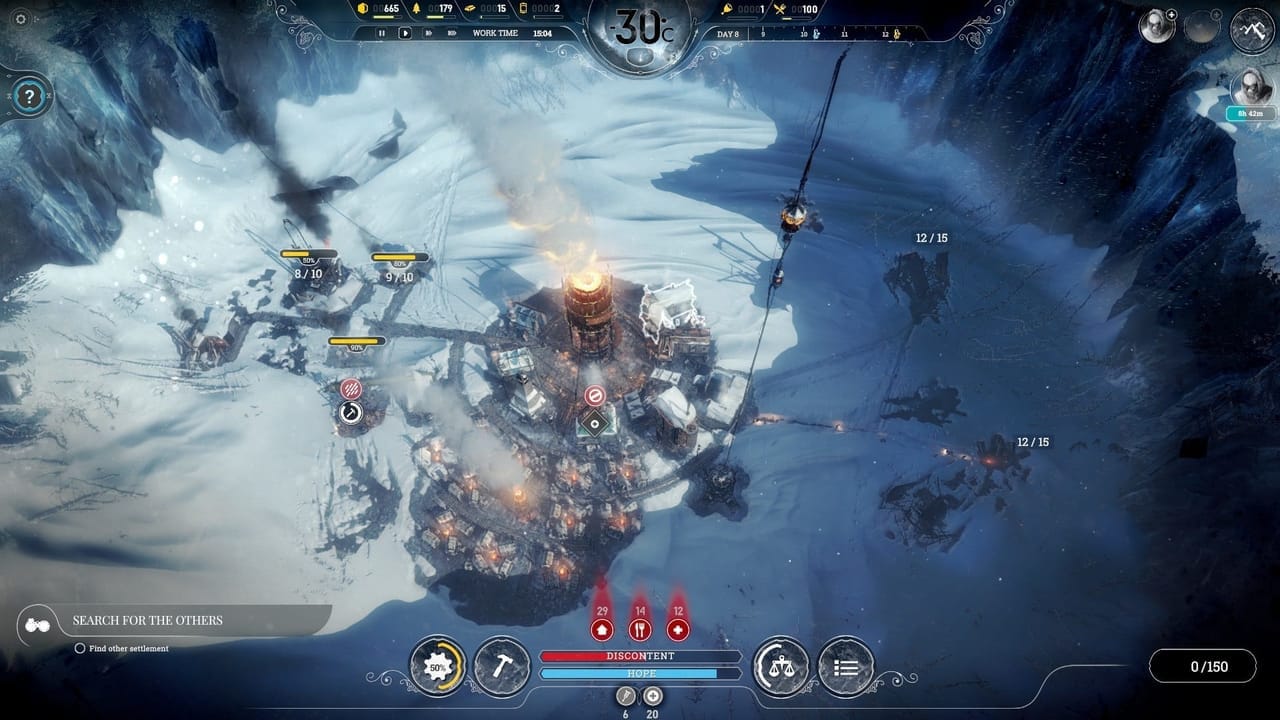
The big question remaining is: does Frostpunk succeed in its goal of creating a city builder with a narrative experience that challenges the player morally?
That’s a bit of a tough question to answer because I think it depends on what you expect going in. If you are expecting an emotional up-close experience like that of This War of Mine, and want exactly that, Frostpunk isn’t going to deliver. This isn’t a game that has you up front and center, seeing the white in the eyes of those you may be harming. If you are looking for something a bit less specific in the experience and more something that challenges you some as a person, I think Frostpunk largely succeeds.
Frostpunk’s dynamic early game really succeeds in pushing on those buttons and asking a lot of questions about what you will do to survive. Those decisions made early on ripple throughout the game mechanically and in the emergent narrative of your city, as well as the more direct follow-ups that can happen. While an early decision regarding whether to put kids to work has gotten the most press due to being an early decision you have to make, even if your decision is just to delay making a decision, there are numerous other dilemmas and situations that come up asking you what choices you'll make to try to build your society. While many of the decisions you have to make are impactful, it does feel like 11 bit could have gotten more out of it with leveraging their visuals more. While they would have to be careful not to take it overboard, pressing that line of visual impact from decisions you make and the consequences of them more could have helped deliver a stronger emotional punch.
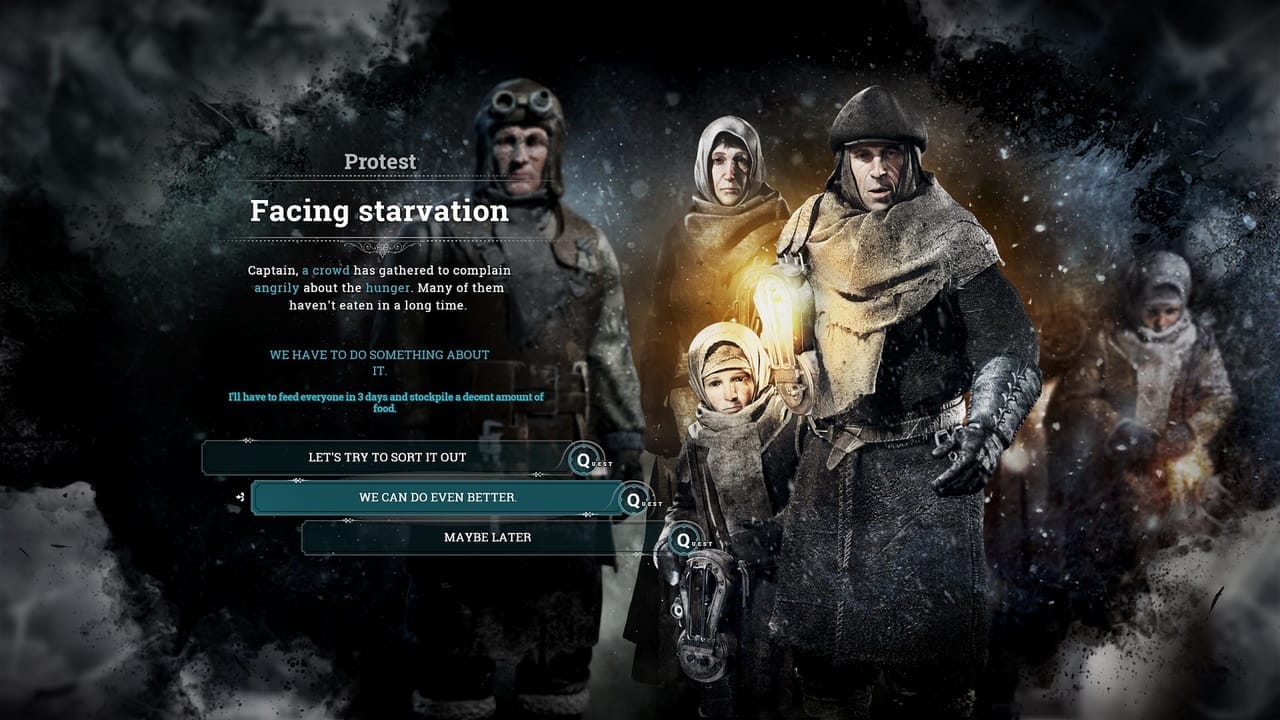
That said, where I found Frostpunk perhaps at its strongest was in the early-mid game of act 2. In this part, you’ve moved onto the second Book of Laws, which opens up new possibilities in how you approach problems, as you've started to get a bit beyond basic survival and now have to deal with a crisis among your citizens. I’m avoiding spoilers here, but there are a lot of different approaches you can take at this point, and how you react can say a lot about what you value most. The idea of Creeping Normality shows itself most insidiously here as you make choices as to what you’ll do.
Beyond the main campaign mode, Frostpunk also has two alternative campaigns, which each possess some interesting aspects and manage to change up the gameplay a bit. The Ark is the first of them that you unlock, and in it you have a small team of engineers and need to protect four seed arks that contain samples of all types of life from the pre-frost Earth. You have to build more automatons and design things so that Automatons will be able to run everything, while also ensuring the seed arks never go beneath chilly. The fewer amount of people and increased push on never letting the seed arks get cold change up the experience, in addition to the obvious push of more automatons.
The second campaign is called The Refugees, and it takes a left where the Ark went right. Where the Ark challenged you to deal with fewer people, the Refugees has you start out with basically nothing supply wise beyond some people and having to deal with ten incoming waves of refugees that you need to be able to settle. It also has a theme of class conflict that harkens back to some early ideas 11 Bit had, with the refugees having stolen this generator access away from the Lords and promises of that coming due as a bill later on.
Each of these creates a different experience to the base game and add a bit of mechanical twist on top of what you already had while effectively being more Frostpunk. I found each to be compelling and fun, but that relies on you finding the core gameplay loops of Frostpunk fun, as neither of them changes anything away from that. Frostpunk also has a decent set of difficulty options that you can customize to make the experience more your own.
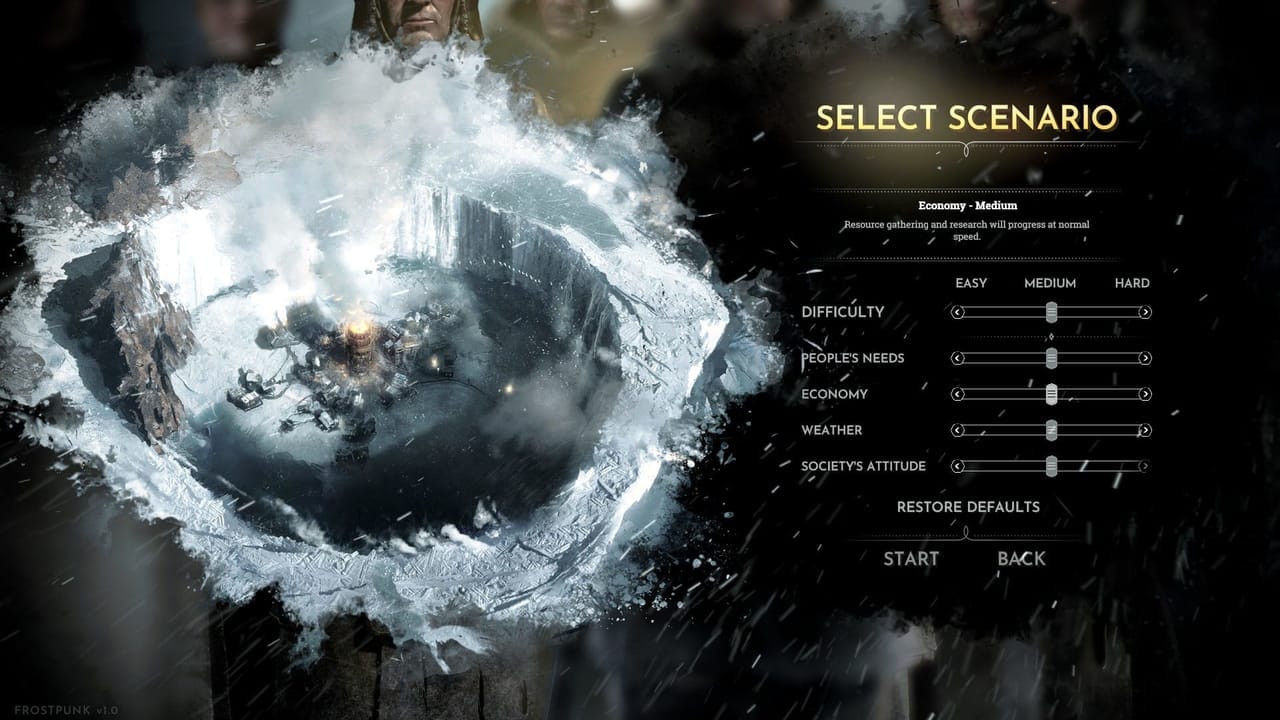
Frostpunk doesn’t quite deliver the emotional gut-punch it seems like it wants to at times, but what it offers in its place is more than enough to be worthy of your time. A smart experience that asks you what trade-offs you’ll make in the face of adversity and has some neat twists on the classic city-building mechanics makes Frostpunk stand out from the pack.
Frostpunk was reviewed on PC with a code provided by the developers.
Review Summary
Frostpunk is a compelling experience with a smart and interesting take on the genre that might not have the emotional punch you were looking for.
(Review Policy)Pros
- Brainy, Unique Take on the Genre
- Strong Aesthetic
- Compelling Gameplay
Cons
- Mid-Game Slog
- Similar Looking Buildings
Have a tip, or want to point out something we missed? Leave a Comment or e-mail us at tips@techraptor.net
